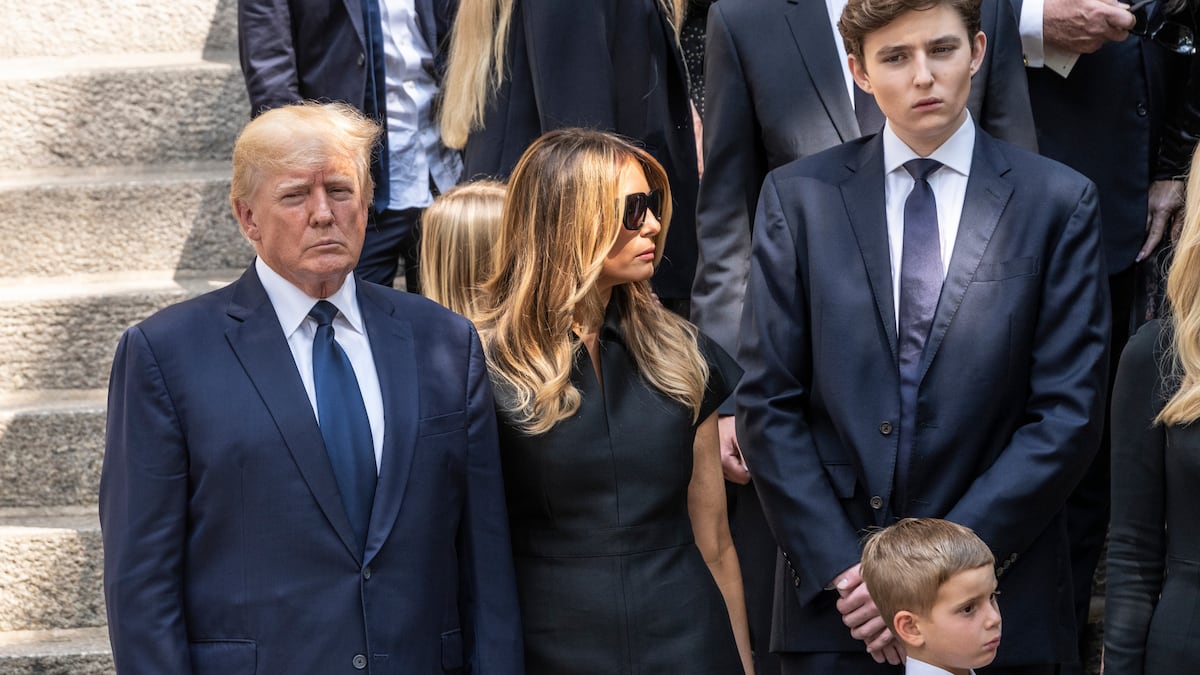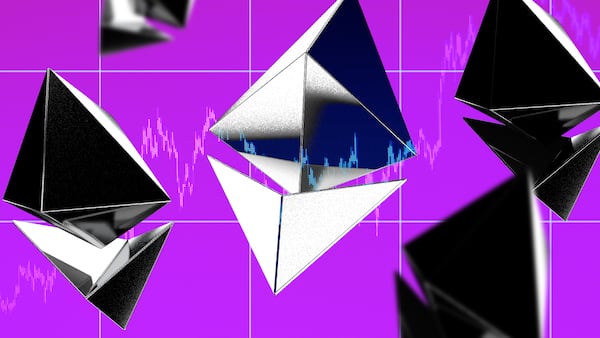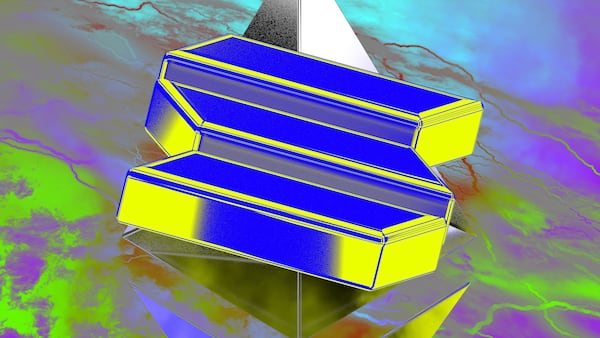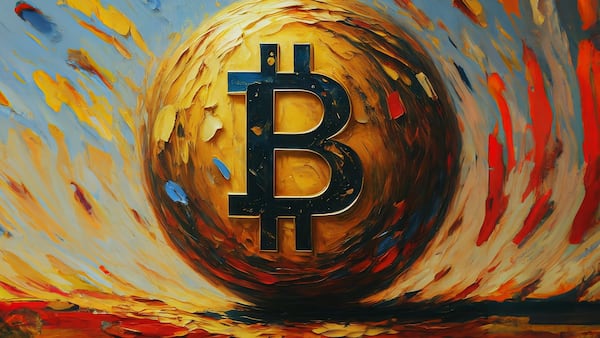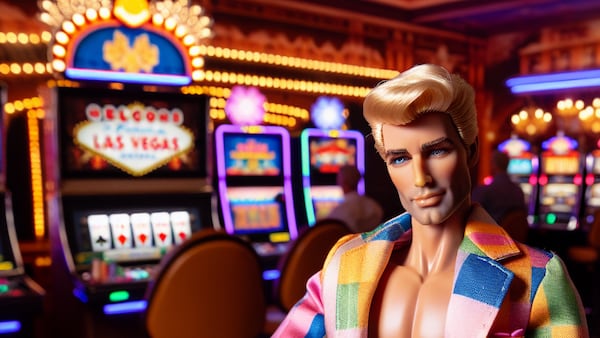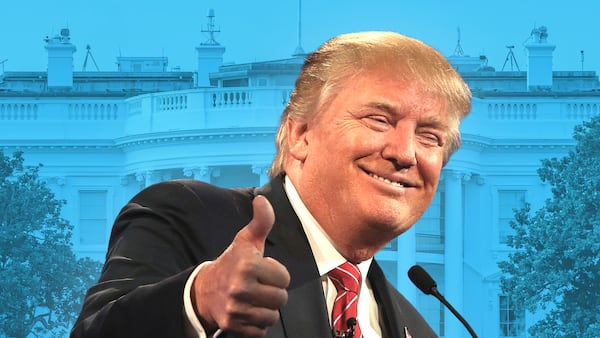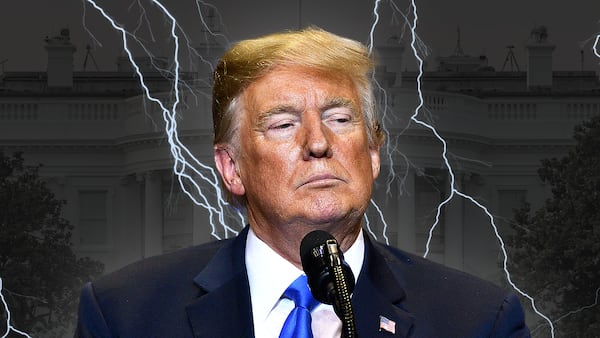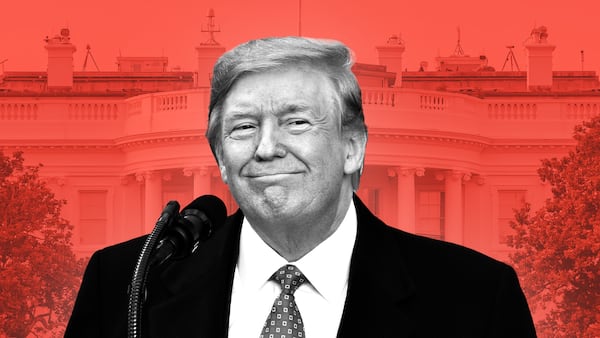- Most Polymarket bettors did not believe reports that Barron Trump had a hand in a new, Donald Trump-themed token.
- UMA voters on Monday settled the market in favour of bettors who wagered Barron was not involved.
- But Polymarket questioned the vote's outcome and said it would announce a "near-term solution."
Did Barron Trump help create the Donald Trump-themed DJT token? Maybe — but there wasn’t enough evidence to prove it, according to UMA voters asked to weigh “all available evidence” as of June 23.
UMA is a “decentralised truth machine” that crypto-based betting platform Polymarket uses to settle controversial wagers.
But the decision didn’t go over well with Polymarket, which said Wednesday it would introduce a “near-term solution” to “uphold the integrity of the marketplace and pricing.”
Bettors wagered more than $1 million on whether “a preponderance of evidence suggests that Barron Trump was involved in the creation of the Solana token $DJT.”
The odds that Barron, the son of presumptive Republican presidential nominee Donald Trump, was involved with the token’s launch topped out at 60% on June 20. But those odds quickly cratered, as evidence of his involvement failed to materialise.
The decision was kicked to UMA, a protocol that aims to settle disputes via token-based voting. Other entities that use UMA include DAO voting platform Snapshot, crypto insurer Sherlock, and Ethereum staking research website Rated.
UMA voters on Monday overwhelmingly agreed that a “preponderance of evidence” available on June 23 did not suggest Barron’s involvement.
“I believe that our voters did well and acted honestly,” UMA founder Hart Lambur told DL News.
“This was ambiguous and voters thought a ‘NO’ answer was the least bad answer in a difficult situation.”
Polymarket didn’t immediately return a request for comment.
Bet on Barron Trump’s role
The fracas started last week, when Pirate Wires, a publication focused on technology and politics, posted on X that “Trump is launching an official token — $DJT on Solana,” citing “conversations.”
“Barron spearheading,” it added, referring to Trump’s 18-year-old son.
But Trump spokespeople never commented on DJT, raising questions about the accuracy of the report.
Bettors on Polymarket were sceptical. They quickly created two betting markets: “Is $DJT real?” And “Was Barron involved in DJT?” The former asked bettors to wager whether the DJT token was genuinely created by Trump, by a member of his family, or by his staff.
Martin Shkreli, a former pharmaceutical executive and hedge fund manager, quickly emerged as the loudest supporter of the theory that someone in Trump’s orbit was involved in the launch of DJT.
“Another Trump insider, more insider than me. A lot more coming,” Shkreli said on X, linking to a post, now deleted, from Bo Loudon, a self-described 17-year-old Trump activist, that said: “DJT IS THE ONLY REAL TRUMP TOKEN.”
Shkreli later acknowledged he was “part of the team” behind the token, but he maintains that it was a collaborative effort.
Speaking on a live forum hosted by crypto influencer Mario Nawfal on X last Wednesday, Shkreli also claimed that Barron Trump holds the majority of tokens and is the sole beneficiary of the project.
DL News could not independently verify Shkreli’s claims.
UMA’s vote
An insider with direct knowledge of decisions surrounding the Trump campaign told DL News that the campaign wasn’t involved in the project.
Pirate Wires founder and editor-in-chief Mike Solana defended his reporting on a podcast on Friday.
“I know, as sure as I can possibly be, that Barron Trump is involved in this,” he said.
“I don’t know the extent to which there is, perhaps, warring family stuff behind the scenes, I don’t know if Martin is the reason that Barron is involved,” Solana continued.
“I can only tell you, from my point of view, that the son of the president, of the former president Donald Trump, was involved in the creation — certainly the distribution and the promoting of this coin.”
The question of Barron’s involvement was sent to UMA. The protocol’s token holders vote to settle questions of fact, with the idea being that collective wisdom is the best way to get at the truth.
“UMA voters first had to discern what a preponderance of evidence was,” Lambur said.
“This is really ambiguous and hard to discern. Then, they had to decide whether that kind of evidence was publicly available at the time of the vote.”
The debate played out in UMA’s Discord server, where some users said Solana’s word was enough proof Barron likely had a hand in DJT. Others pointed to a screenshot Shkreli shared on X on June 20, in which he exchanges messages with a user going by “BT.”
“Did we do a tax on the coin?” BT asks. It is unclear whether BT is Barron Trump and whether they are discussing DJT.
Others argued that claims made by Solana and Shkreli did not amount to “evidence.”
“I think there’s a preponderance of evidence that the key players here have been in contact with Barron Trump,” one user wrote on Discord. “However, I don’t think the evidence is there that Barron was involved in the creation of the token, which is what this market is about.”
Shkreli and Solana, who is also chief marketing officer at Polymarket investor Founder’s Fund, have slammed UMA’s decision.
“Basically the system here is many people, with no actual insight into the subject, are speculating,” Solana wrote on X. “This speculation, in aggregate, is somehow meant to source a ‘true’ conclusion surrounding largely private information. Fascinating.”
Past controversy with UMA
It wasn’t immediately clear why Polymarket took issue with UMA’s ruling. But it isn’t the first time the protocol’s decision-making process has stirred controversy.
About a year ago, UMA voters were asked to settle a $2 million bet on whether the US Coast Guard had found the Titan submersible, which had disappeared during a trip to the ocean floor.
The Coast Guard found pieces of the submersible and determined it had imploded due to an engineering failure, instantly killing all five of its passengers.
While UMA voters sided with those who had bet Titan would be found. But critics said voters’ decision contradicted the fine print of the Polymarket wager, which stated finding pieces of Titan, “but not the cabin which contains the vessel’s passengers,” would not count as “finding” the submersible.
Update, June 27: This article was updated to clarify the result of UMA’s vote on the “Was Barron involved in $DJT?” market.
Have a tip? Contact the author at aleks@dlnews.com.


